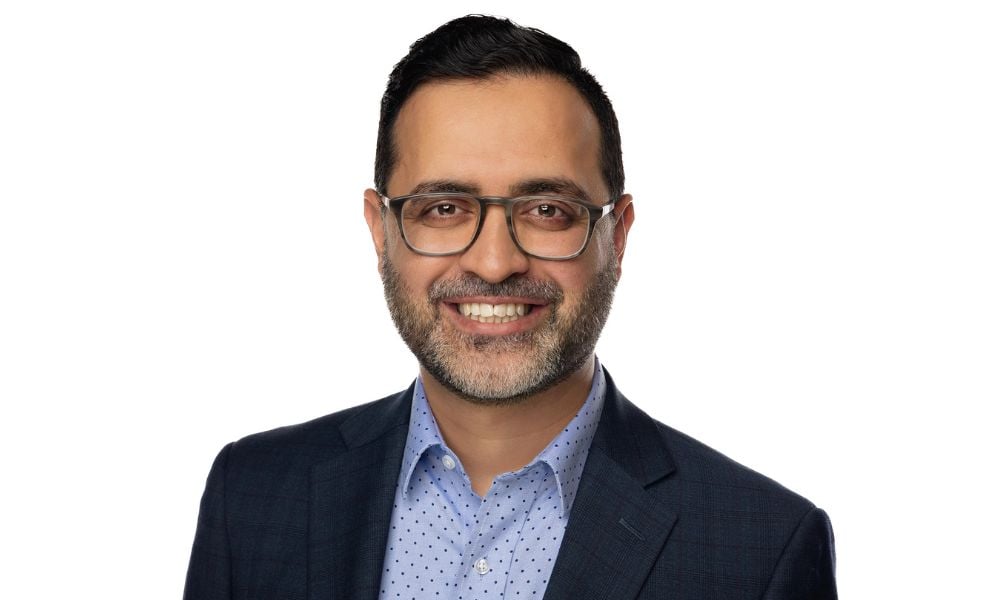Hash Assad explains how he navigates the grey areas of Halal investing

For Muslim investors, finding a balance between their finances and their faith can often be a daunting challenge, particularly in the West where religious considerations are often pushed to the sidelines in the investment world.
But Hash Assad has spent his entire career as a financial advisor aiming to improve his clients’ wealth while adhering to Muslim law, an area he has remained passionate about both professionally and personally.
In the past, Assad would hand-pick stocks after ensuring that they were Halal (compliant with Islamic law). But now, Assad has partnered with The Mackenzie Shariah Global Equity Fund, which he now uses for parts of his clients’ portfolios. The fund is run by industry veterans who check for compliance on a regular basis, something that gives Assad confidence when he allocates his clients’ funds.
Companies that have holdings related to pork, defence, alcohol, tobacco, interest and gambling are overlooked with Halal investments. Assad uses Costco as an example of a company that cannot be invested in, because the company makes over five per cent of its profits from alcohol sales.
The portfolios set up by Assad are inherently aggressive, since Halal investment does not include fixed income outside of limited exceptions. Cash holdings also need to be less than 49 per cent, and debt equity must remain under 33 per cent.
“We can't have companies that are debt ridden. The debt equity ratio has to be less than 33 per cent, while cash compliance is important as well,” said Assad, executive financial consultant with Assad Wealth Management, which operates under IG Wealth Management. “We can't be investing in companies who are not running an active business. The cash holdings needs to be less than 49 per cent, and it needs to be an active business that is growing.”
According to Assad, sectors like tech, healthcare and oil and gas make up large proportions of Halal portfolios. And while the aggressive nature of these portfolios are often riskier for investors, Assad says they generally outperform traditional, more risk-averse portfolios.
“Everybody that invests in the Halal way understands the fact that this portfolio is automatically an aggressive portfolio,” he said. “It's a pure equity portfolio, so that's a baseline understanding, because we're not allowed to hold fixed income instruments.”
Investors have increasingly sought protection from equity markets in recent months due to the volatility from US President Donald Trump’s trade policies. Assad says that while he does not tamper with portfolios very often, he has taken advantage of market dips to buy Halal stocks at a discounted price. He also shifted some of his clients’ gold holdings out of their portfolios once he saw the commodity become overvalued.
While the guidelines set out by The Mackenzie Sharia Fund and from Assad himself are helpful to Muslim investors, Assad says the levels of comfort for investors vary on an individual basis. He says mortgages are a perfect example – many Muslim-Canadians strictly adhere to the Quran’s Riba (usury) laws, while others are comfortable accessing housing through the mortgage system.
“Islamic finance is not black and white, there is a lot of grey. And in each person's faith level is different. So you have to recognize the fact that there are certain people that will never do certain things, and people who are very comfortable with certain things,” he said. “Each person has got a different level of understanding and comfort with them and the guy upstairs, so we try to find out what that is for a client.”
Assad says that balancing finance and faith has been a decades-long dilemma that he continues to grapple with, but emphasizes the importance of the knowledge he has been able to accumulate through his journey as an advisor.
“The blessing that I have is that I have the capacity to know where the boundaries are to do what I need to do,” he said. “But it’s been a constant clash every single day for 20 years of my life.”
Assad emphasizes the three “Fs” that are important to his clients and himself: finance, family and faith. And while family and faith will always be top of mind to his clients, he suggests that financial health helps clients with the other two components.
“Finance is actually the one that runs everything, because if your finances are in order, you're going to have a good faith, because you’ve got the freedom and the flexibility and you can give more,” he said. “If finances are in order and you want to have a good family, they're going to have good education and have a nice home.”
Due to the general lack of availability for Halal investment in Canada, Assad says he has a high proportion of investors outside of his office base in Calgary, including clients in Saskatchewan, Nova Scotia and Ontario. He says that plenty of advisors look for Halal investment services, though find in the end that guidelines are not being followed. And after working for so long to develop a Halal investment system, Assad says he is looking for younger advisors to continue on the path he has carved out.
“My vision is education. We want to educate as many people as we can, to empower them so that they can take the matters into their own hands and make proper decisions for their families to align their faith and their finances,” he said. “From the growth perspective, we want to be able to teach and mentor advisors to do this the proper way to serve this community, which is ever-growing.”



